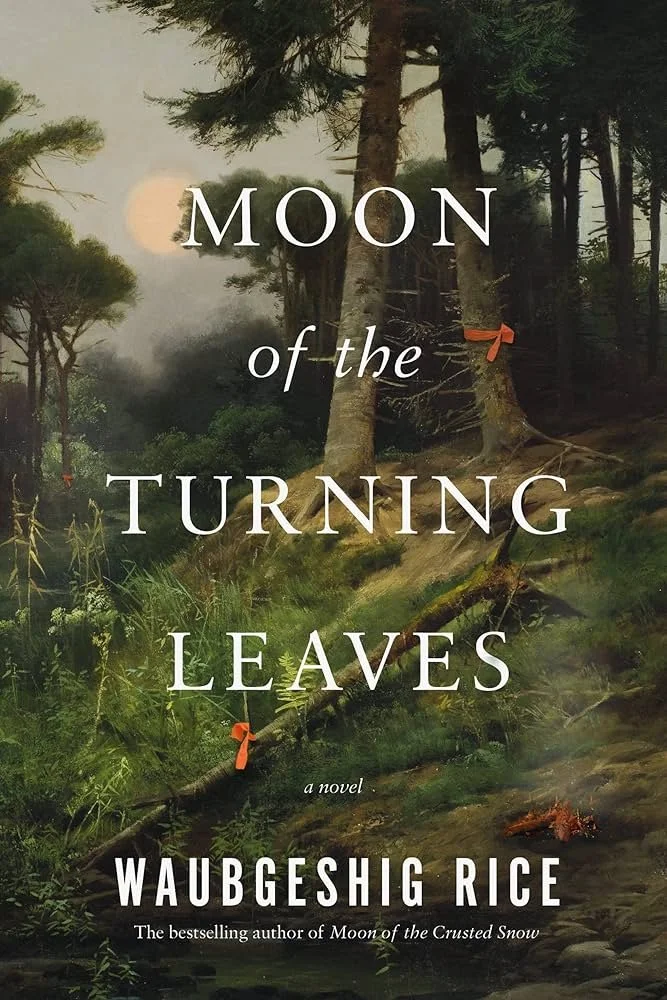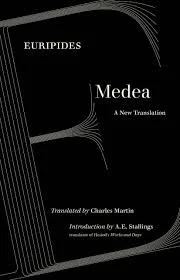Edgar's Book Round-Up, April 2024
It just keeps going, doesn’t it? Keep calling your reps, I guess, or buy e-sims, or get shirty with your alma mater or favorite college-team college if they — as so many universities are — mishandling student protests. Here’s some books; links go to Bookshop.
※
First up this month, we turn to The Sugared Game and Subtle Blood, the latter two volumes of the Will Darling Adventures by K. J. Charles. I mentioned the first entry previously, but will discuss them all together here. Over the course of three novella-length stories, we meet Will Darling who, at loose ends after fighting in World War One, inherits a bookshop from his eccentric uncle. But Will’s uncle was playing some deep games, and Will soon finds himself pursued by a mysterious organization called Zodiac — and thrust into the path of elegant, aristocratic Kim Secretan, who is playing more than a few games of his own. The stories are self-consciously modeled on the adventure novels of the early twentieth century, but with a gay-romance twist; to Charles’ immense credit, she keeps these elements in roughly equal focus, using them to complement each other and keep the story chugging along. Sure, the exact aims of the Zodiac were nebulous at best (are they doing germ warfare? Are they smuggling? Are they blackmailing? Whatever works!), but it’s basically good-quality pulp — something I can certainly appreciate.
This is such a good fucking cover, too.
I next finished, in audiobook form, Moon of the Turning Leaves by Waubgeshig Rice, the sequel to his earlier Moon of the Crusted Snow, which long-time readers may recall I loved. If anything, I found myself even more taken with Turning Leaves: picking up twelve years after the events of the first novel, it centers around Evan Whitesky’s daughter, Nangohns, as she and a group of others from her community strike out south to find a new home in the Great Lakes region. The journey south takes the characters through a landscape riven by internal collapse, illuminated by moments of togetherness and care, as well as expanding on the nature of the collapse alluded to in Crusted Snow. Crucially, Rice continues to refrain from explaining exactly what caused the more obvious, cascading collapses that impact the characters, leaving at its center an unknown force, remaking the world. Rice also makes some of the most effective use of omniscient narration I’ve encountered in years, the narrative drifting between characters, and sometimes hovering over them, as if driven by its own motive force. In interviews, Rice has credited both his experiences growing up on a reserve, as well as his lengthy career in journalism, for his approach to story and subject matter, but it’s pure craft that keeps the story racing along. A worthy sequel to an already-great novel, it was a pleasure to read.
Next up we have The Soldier’s Scoundrel by Cat Sebastian — an honest-to-god romance novel, from an Avon imprint and everything. I was directed towards Sebastian’s work by my sisters, who were introduced to it by a mutual friend of ours; I mentioned her briefly once previously. As noted elsewhere, I have been attempting to understand how the romance genre works, inspired by C. L. Polk’s incredible use of romance beats to keep the Kingston Cycle chugging along, and good lord, I feel like such a nerd for justifying things I have enjoyed, so I will stop. The Soldier’s Scoundrel is a character-driven historical romance novel, set in approximately the regency period: Oliver, the titular soldier is a hide-bound young man, desperately concerned with his sister’s well-being in her loveless marriage, driven to distraction by Jack, a proto-private eye with a checkered past; in addition to a variety of scrapes and run-ins with people’s awful — and delightful — family members and friends, the two men have a lot of sweaty tension and then some fulsomely described sex. It’s fun! Sebastian’s prose style is clear and hits a nice sweet spot that never tips too far into the tawdry or tongue-in-cheek, and I’ve read worse sex scenes in ostensibly “better” books. As with the K. J. Charles books discussed above, it’s pulp — and pretty good pulp, at that.
Somehow, I feel like this cover captures the best of Martin’s translation, and I mean that a compliment to both cover and translation.
As part of a class, I next finished Charles Martin’s translation of Euripides’ Medea, which also features some charming introductory material by A. E. Stalling. More or less since its appearance in the fifth century BCE, Euripides’ play has been the Medea story, all other versions read or performed in relation to it somehow. Martin here offers a brisk translation that feels as pacy as Euripides’ Greek, rendering the text into clear, contemporary English that nonetheless preserves the divine strangeness of the events. Stalling’s introductory detail is also useful, though I’ll admit, I found Martin’s own description of an ideal performance for his translation much more compelling. It’s a good version to read, though it’s difficult for me to gauge how well it would perform. I also am the first to admit that I have little point of comparison besides Euripides’ Greek — but for whatever it’s worth, I liked it well enough.
The next completed book — or rather, set of books — in this round-up is a third run-through of Lev Grossman’s Magicians trilogy, once again in audiobook form. Readers will recall that I really like these books: essentially a bildungsroman that follows Quentin Coldwater, a quintessential depressed recently-former-”gifted kid” thrust unexpectedly into the world of magic, a secret world that underlies and underpins our own, and thence to Fillory, the setting of his favorite childhood books, could easily have been a power fantasy, or a simple satire of the popular fantasy of its time, but Grossman instead offers a phenomenal character study, coupled with the very rewarding process of watching a guy who basically sucks become a guy who doesn’t suck that much. Reading the books back-to-back-to-back, I was stricken this time by how well they maintain their pace across the three volumes. Grossman’s incredibly clear-eyed approach to his protagonist is, again, rewarding: a warts-and-all examination of a particular type of guy that keeps the reader fully grounded in Quentin’s worldview, even when that worldview is fucked up — making it all the more rewarding when he is forced to confront the ways it’s fucked up, and try to move past them. (Also, seriously, the throwaway bit in The Magician’s Land about Quentin suddenly having a tetchy back after age 25 is very, very real.) I will probably read them yet again, and if the pattern holds true, look for yet another venture through in late spring or early summer of 2027.
I can’t tell if I like how the cover looks like something you’d find in a Christian bookstore, or if it’s just boring.
Next up, another audiobook, and the only nonfiction on this month’s round up: The Exvangelicals: Loving, Living, and Leaving the White Evangelical Church by Sarah McCammon, narrated by the author. McCammon was assigned to follow the Trump campaign in 2016, and doing so brought her face to face with the realities of the church or church-adjacent milieu in which she herself was raised. From this confrontation — and some articles about it, of course — was born this book. I picked it up in hopes that there would be some discussion of adults who were home schooled (a demographic group into which I fall), and while there wasn’t as much of that as I’d hoped, McCammon nonetheless offers a well-structured excursus through a somewhat underserved but increasingly vocal segment of the population. McCammon worked for quite a while at NPR, and you can tell: the balance between statistics and academic analysis, interview, and personal anecdote are straight out of the NPR offices, which isn’t necessarily a bad thing. I appreciated that McCammon remained specific in her discussions of evangelicalism as a movement, especially in light of its frequent support of/by white nationalism; equally, while the many tales of young evangelicals getting away from their incredibly circumscribed milieu, learning that the “secular” world was actually full of decent people, and questioning the beliefs they had had foist upon them could have become repetitive, these personal revelations remained fresh. She also shies away from sensationalizing her material, instead allowing her subject to speak for itself.
One more audiobook: The Hunter by Tana French. The sequel to The Searcher, which I discussed here, we once again join Cal Hooper, formerly of the Chicago PD, now retired to Ardnakelty, a small town in the west of Ireland. But his peace is disturbed by the return of his protegee Trey’s, father, Johnny, a fast-talking good-for-nothing who convinces half the town to join him in running a scam on a Englishman who wants to mine the hills for gold. Needless to say, this goes sideways long before anyone even dies — and someone does, and someone killed him, and Cal, Trey, and Cal’s ladyfriend, Lena, will have to figure it out before the police investigation destroys the town. The police presence provided some fun moments of character growth for Cal: do his loyalties lie with law enforcement, even after his retirement and transatlantic move, or with the family and community he has found for himself? It’s a question French handles well, and her portrait of suffocating small-town life was treated with Bruegel-like detail and fantasy.
I love these covers so much.
I’ll close out with the only print book on this round-up, which was also actually several books: The Salterton Trilogy by Robertson Davies, which is not on Bookshop, so this link goes a Bookfinder search result. Davies, a Canadian master of magical realism, is better known for his later works, especially the Cornish and Deptford trilogies (no, I don’t know why he did that). Salterton, however, appeared something like 20 years before the earlier of those two, and certainly has the feeling of an early-career piece, though it wasn’t especially early in Davies’ career or life. Loosely focusing around the relationship between Solly Bridgetower and Pearl Vambrace, Davies is less interested in their burgeoning romance and much more interested in observations on life in a small Canadian city in the mid twentieth century. The plots of the three novels, such as they are, are better taken as armatures on which Davies can hang delicious character portraits and droll observations; the fact that this doesn’t become incredibly tiresome very quickly speaks to his skill. I read the Deptford and Cornish trilogies fifteen years ago, and so some of the details may have escaped me, but I do not recall quite the level of dismissive misogyny — lightly seasoned with racism, which is, admittedly, usually from the mouths of people who suck, unlike the misogyny, which is pervasive — that was on display here. Personally, having grown up around a lot of that, I was able to enjoy the novels in spite of it, but I could certainly see it being a deal-breaker. But while these foibles are more prominent here than I recall them being in Davies’ later works, his prose is truly lovely: like sinking into a leather armchair in front of a fire on a cold day, it is both comforting and cultured, welcoming and warm. While I wouldn’t start with The Salterton Trilogy, I personally enjoyed it, and I am already looking forward to reading Davies again.
※
That’s all, folks. Follow me and Cameron on Bluesky, or Broken Hands on Tumblr or Facebook.




